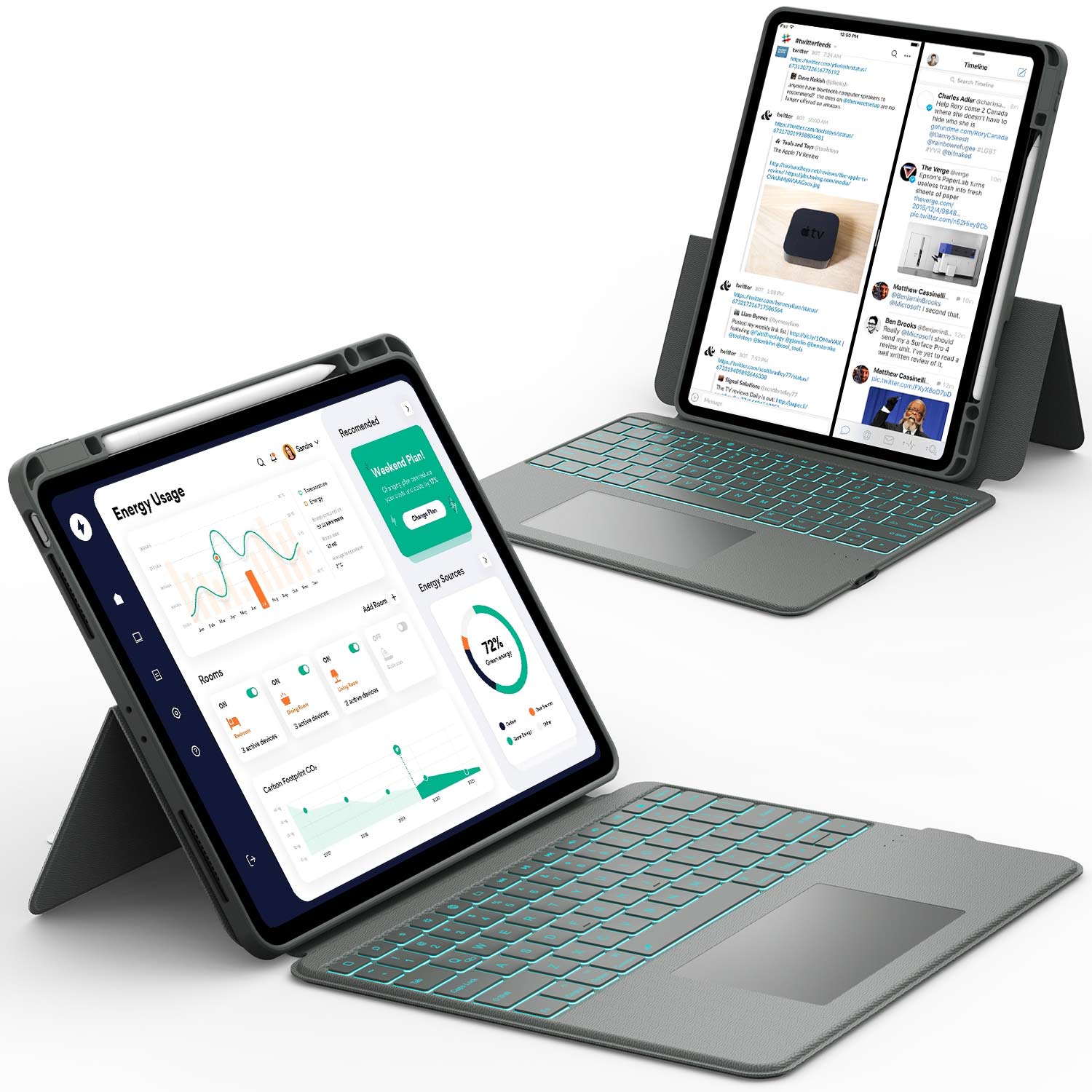"iPad kid" has rapidly become part of our cultural vocabulary, capturing a distinctive aspect of modern childhood that parents, educators, and social observers recognize instantly.
This phrase has evolved from casual internet slang to a recognized descriptor of a specific behavioral pattern seen in young children.
But what exactly does it mean to be an iPad kid, and what implications does this label carry for child development, parenting approaches, and our collective understanding of childhood in the digital age?
This comprehensive guide explores the nuances of the iPad kid phenomenon, examining its definition, characteristics, potential impacts, and the broader context of children's relationship with technology.
Defining the "iPad Kid" More Than Just a Child with a Tablet
An "iPad kid" typically refers to a young child who demonstrates a strong dependency on tablets (not exclusively Apple iPads, despite the name) for entertainment, stimulation, and emotional regulation.
These children often display distinctive behavioral patterns, including intense focus on their devices and difficulty transitioning to non-screen activities.
When considering a child's first tablet experience, the device itself matters significantly for durability and child-friendliness. Parents researching the right device for their young ones may benefit from understanding the options available.
📌Discover which iPad model strikes the perfect balance between performance, durability, and child-appropriate features in our comprehensive guide to selecting the best iPad for kids.
“iPad Kid” Internet Slang and Social Commentary
The term "iPad kid" gained prominence around 2020-2021, particularly on social media platforms like TikTok, where users began creating content depicting stereotypical behaviors associated with children who have unlimited or excessive access to tablets.
What began as a lighthearted meme evolved into a broader social commentary on modern parenting practices and technology's role in childhood.
Key Characteristics and Observable Behaviors
While individual children may vary, the "iPad kid" archetype typically involves more than just tablet usage, it describes a pattern of behavior and relationship with digital devices that sets these children apart from their peers.
The label often implies both the child's behavior and the parenting approach that enables such intense device attachment.
Common Behaviors Associated with "iPad Kids"
High Levels of Engagement and Difficulty Disengaging
Perhaps the most defining characteristic of an "iPad kid" is their intense absorption when using a tablet. Parents and caregivers often report that these children enter a trance-like state, becoming completely engrossed in their digital activities to the exclusion of the external environment.
When it's time to put the device away, transitions can be extraordinarily difficult, often resulting in emotional outbursts.
As children develop these deep connections with their tablets, protecting these valuable devices becomes essential for both financial and safety reasons.
Parents often struggle with finding the right balance between protection and usability.
📌Explore our carefully curated selection of iPad cases specifically designed to withstand the inevitable drops and spills while maintaining child-friendly functionality.
Preference for Digital Entertainment Over Other Activities
"iPad kids" typically show a marked preference for screen time over traditional childhood activities like outdoor play, creative arts, or face-to-face social interaction. When given choices, they consistently gravitate toward their devices, sometimes refusing to engage in non-digital activities altogether.
Potential for Tantrums or Distress When Screen Time is Limited
One of the most concerning behaviors associated with the "iPad kid" phenomenon is the dramatic emotional reaction that often occurs when screen time ends.
These reactions can range from whining and crying to full-blown tantrums that may seem disproportionate to the situation, suggesting a potential dependency relationship with the device.
Impact on Social Interaction and Communication Skills
Children heavily dependent on tablets may exhibit delayed or altered social development. Some observers note that "iPad kids" might struggle with maintaining eye contact, engaging in back-and-forth conversation, or reading social cues, all essential skills developed through regular face-to-face interactions that may be limited when screen time dominates.
Possible Effects on Physical Activity and Development
The sedentary nature of tablet use raises concerns about physical development for children labeled as "iPad kids." Extended periods of sitting and focusing on a screen may impact everything from gross motor skills to posture, potentially contributing to issues like delayed physical milestones or increased risk of conditions associated with sedentary behavior.
When comparing educational technology options, many parents find themselves weighing the merits of different devices beyond just iPads. Understanding the distinctions between popular educational technology can help make better-informed decisions for your child's digital learning journey.
📌Our comprehensive comparison between Chromebooks and iPads highlights the key differences in functionality, durability, and educational applications to help you make the best choice for your child's specific needs.
Sensory Seeking and Overstimulation
Many "iPad kids" display behaviors consistent with sensory seeking—craving the high-intensity, rapidly changing stimuli that tablets provide. The constant visual and auditory input from videos, games, and apps can create a pattern where children become accustomed to this level of stimulation, potentially making quieter, slower-paced activities seem boring by comparison.
The Potential Impact of Excessive Screen Time on Child Development
Cognitive Development: Attention Spans and Learning
Research on children's screen use suggests that the rapid pace and instant gratification of many digital experiences may impact developing attention spans. Children accustomed to constant digital stimulation might struggle with sustained focus on tasks that require persistence and delayed reward, potentially affecting learning processes that depend on these skills.
Language and Communication Skills
Early childhood represents a critical period for language acquisition, traditionally developed through back-and-forth verbal exchanges with caregivers. When tablets replace significant portions of this interactive time, some children may experience delays in vocabulary development, conversational turn-taking, and other foundational communication skills.
Social and Emotional Development: Empathy and Interaction
Face-to-face social interactions provide the foundation for developing empathy, emotional regulation, and understanding others' perspectives. Children who spend disproportionate time with tablets may have fewer opportunities to practice these crucial skills, potentially affecting their ability to form and maintain relationships.
While discussing the potential impacts of tablet use, it's worth considering how to physically protect these expensive devices from inevitable accidents. Many parents wonder if protective cases are truly necessary or just an additional expense.
📌Learn about the real-world impacts of drops and spills on unprotected iPads and how the right case can significantly extend your device's lifespan while providing peace of mind.
Physical Health: Sedentary Behavior and Sleep Patterns
The association between excessive screen time and physical health concerns continues to grow stronger as research evolves. Beyond the obvious connection to sedentary behavior, tablet use particularly before bedtime, has been linked to sleep disruptions due to both the stimulating nature of content and the blue light emitted by screens, which can suppress melatonin production.
Mental Well-being: Anxiety and Dependence
Some research suggests connections between excessive screen time and increased anxiety or mood disturbances in children. The dopamine release associated with certain digital activities (like games or social media) can create patterns similar to dependency, where children rely on devices for emotional regulation or mood enhancement.
The Role of Parents and Caregivers in the "iPad Kid" Phenomenon
Using Tablets as Distraction or "Digital Babysitters"
Understanding the "iPad kid" phenomenon requires acknowledging the context in which it emerges. Many parents turn to tablets out of necessity whether managing multiple responsibilities, seeking a moment of peace in chaotic schedules, or attempting to keep children occupied in public settings.
The convenience tablets provide can inadvertently establish patterns that become difficult to modify.
Permissive Parenting and Lack of Screen Time Boundaries
The development of "iPad kid" behaviors often correlates with inconsistent or absent boundaries around technology use. Without clear limits on when, where, and for how long tablets can be used, children naturally maximize their access to these highly engaging devices, potentially establishing problematic usage patterns.
Balancing Digital Engagement with Other Activities
The challenge for modern parents isn't necessarily eliminating technology but rather ensuring it exists in balance with other developmental experiences. Children need varied activities physical play, creative expression, social interaction, and unstructured exploration alongside their digital experiences to develop holistically.
Expert Perspectives and Recommendations on Screen Time for Children
Guidelines from the American Academy of Pediatrics
Current recommendations from leading pediatric organizations emphasize age-appropriate limitations.
For children under 18-24 months, experts generally advise minimal screen exposure except for video chatting with family.
For children 2-5 years old, high-quality programming limited to 1 hour per day with parental co-viewing is suggested. For school-age children, consistent limits on time and content types are recommended, alongside "screen-free" times and zones in the home.
The Importance of Unstructured Play and Social Interaction
Developmental experts consistently emphasize that traditional play remains irreplaceable for healthy child development.
Through unstructured play, children develop creativity, problem-solving skills, emotional regulation, and social competencies in ways that even the best digital experiences cannot fully replicate.
Strategies for Managing Screen Time Effectively
Effective approaches to technology typically include: establishing clear, consistent boundaries; prioritizing high-quality, age-appropriate content; engaging in co-viewing and discussion about digital experiences; creating regular screen-free times and spaces; and modeling healthy technology habits as adults.
Beyond the Label: Understanding the Nuances
Benefits iPads When Used Appropriately
While the "iPad kid" label carries predominantly negative connotations, balanced perspectives acknowledge that tablets, when used thoughtfully, can offer valuable educational opportunities.
Interactive educational apps, creative tools, and access to information can support learning when integrated appropriately into a diverse set of childhood experiences.
The Importance of Content Quality and Parental Involvement
The impact of screen time depends significantly on content quality and contextual factors. Educational, age-appropriate content used with parental involvement and discussion has demonstrably different effects than passive consumption of inappropriate or low-quality material without adult guidance.
Avoiding Stigmatizing Language While Addressing Concerns
The term "iPad kid" risks oversimplifying complex issues and potentially stigmatizing both children and parents.
Constructive conversations about technology and childhood benefit from nuanced perspectives that acknowledge systemic pressures on families, varying access to resources, and the genuine challenges of parenting in the digital age.
Conclusion
In understanding the "iPad kid" phenomenon, the goal isn't to demonize technology or criticize parenting approaches but rather to promote balanced childhood experiences that incorporate the benefits of digital tools while preserving the irreplaceable aspects of traditional development.
As we navigate this relatively new territory, ongoing research, thoughtful discussion, and flexible approaches will help ensure technology enhances rather than diminishes the richness of childhood experiences.
Frequently Asked Questions About "iPad Kids"
Is "iPad kid" always a negative term?
While "iPad kid" originated as a somewhat critical internet meme, the term itself simply describes a pattern of behavior. The concern isn't about tablet use itself but rather about excessive dependence that displaces other important developmental experiences. Many children use tablets appropriately as part of a balanced childhood.
At what age does a child become an "iPad kid"?
The label isn't tied to a specific age but rather to behavioral patterns and relationships with technology. That said, concerns are particularly pronounced for very young children (under 5) whose developmental needs center heavily on hands-on exploration and human interaction rather than digital experiences.
What are the long-term effects of being an "iPad kid"?
Research on long-term outcomes is still developing as the first generation raised with tablets reaches adolescence and adulthood. Current studies suggest potential associations with attention issues, language development, and social-emotional factors, though causality remains difficult to establish definitively.
How can parents prevent their child from becoming an "iPad kid"?
Prevention typically involves establishing healthy technology habits from the start: setting clear boundaries around screen time, prioritizing non-digital activities, ensuring content quality, participating in digital experiences together, and modeling balanced technology use as adults.
Are there any benefits to iPads for young children?
When used thoughtfully, tablets can provide educational opportunities, creative outlets, and exposure to diverse ideas and experiences. Interactive educational apps, digital art tools, and appropriate content can supplement (though not replace) traditional learning experiences.
What are some screen-free activities for children?
Alternatives to screen time are virtually limitless: outdoor exploration, physical activities, arts and crafts, building and construction play, imaginative role-play, board games, reading physical books, cooking together, gardening, and face-to-face social interaction with peers and family members.




















